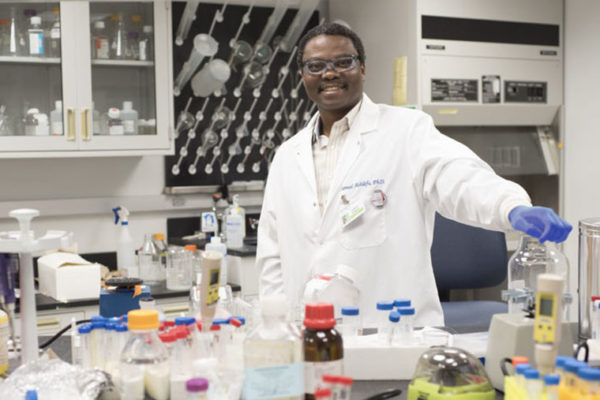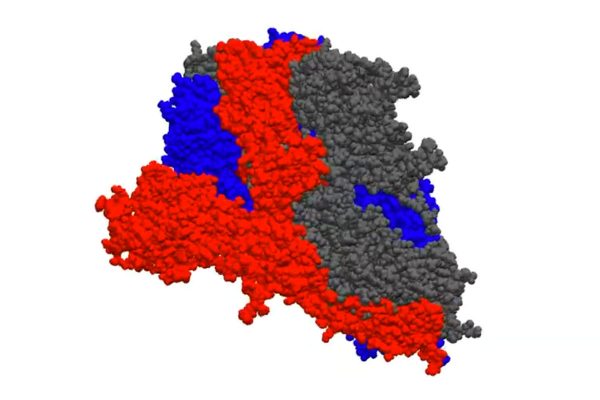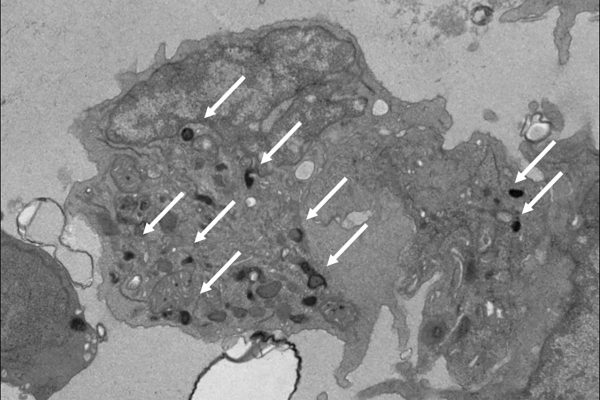Medical Campus students mobilize to help health-care workers, community
As the novel coronavirus has accelerated its spread throughout the Midwest and across the U.S., scores of students on the Washington University Medical Campus have mobilized to support health-care workers and the St. Louis community in the fight against the global pandemic.
Achilefu named to biomedical engineering advisory council
Samuel Achilefu, the Michel M. Ter-Pogossian Professor of Radiology at Washington University School of Medicine in St. Louis, has been selected to serve on the National Advisory Council for Biomedical Imaging and Bioengineering of the National Institutes of Health (NIH).
Lifestyle trumps geography in determining makeup of gut microbiome
Researchers from Washington University in St. Louis studied the gut microbiomes of wild apes in the Republic of Congo, of captive apes in zoos in the U.S., and of people from around the world and discovered that lifestyle is more important than geography or even species in determining the makeup of the gut microbiome.
Whelan named LGBTQ+ scientist of the year
Sean Whelan, the Marvin A. Brennecke Distinguished Professor and head of the Department of Molecular Microbiology at Washington University School of Medicine in St. Louis, has been named the LGBTQ+ Scientist of the Year by the National Organization of Gay and Lesbian Scientists and Technical Professionals for his work on emerging infectious diseases.
Insight into Alzheimer’s early stages provides clues to treatment strategies
Lack of sleep could help promote the development of Alzheimer’s disease, according to two studies from Washington University School of Medicine in St. Louis. The studies could help identify people at high risk of developing Alzheimer’s dementia and point to strategies for prevention.
Medical students lead effort to collect masks, gowns, gloves, eye protection
Medical students are asking university researchers to collect extra personal protective equipment from their labs to donate to frontline health-care workers at university hospitals and clinics.
Possible COVID-19 treatment: transfusion of antibodies from recovered patients’ blood
Researchers at Washington University School of Medicine in St. Louis and elsewhere are investigating whether transfusions of blood plasma from people who have recovered from COVID-19 can prevent or treat the disease. The approach was used with some success during the 1918 influenza pandemic.
Crowdsourced supercomputing project sets sights on coronavirus
Among the research programs racing to develop therapies and vaccines for the new pandemic virus COVID-19 is one of the largest crowdsourced supercomputing projects in the world. Led by computational biophysicist Greg Bowman, at Washington University School of Medicine, the project is called Folding@home.
Immunotherapy using ‘young cells’ offers promising option against cancer
Nautral killer (NK) cells may be more effective as immunotherapy for cancer treatment than adult NK cells that come from bone marrow, according to a new study from the School of Medicine.
Breast milk may help prevent sepsis in preemies
Researchers at Washington University School of Medicine and Mayo Clinic in Rochester, Minn., have found — in newborn mice — that a component of breast milk may help protect premature babies from developing life-threatening sepsis.
View More Stories








